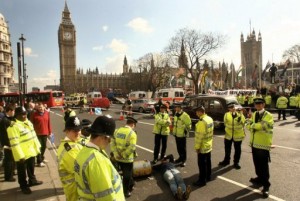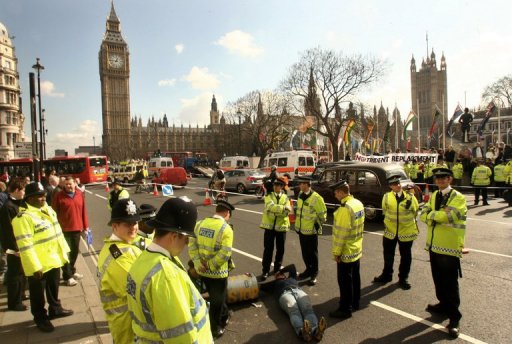
(AFP) – LONDON — Prime Minister David Cameron on Thursday warned that Britain would be left defenceless against “highly unpredictable and aggressive” regimes if it wound down its Trident nuclear deterrent programme.
As he headed for a visit to western Scotland, where the submarines that carry the missiles are based, Cameron insisted: “We need our nuclear deterrent as much today as we did when a previous British Government embarked on it over six decades ago.”
Writing in the Daily Telegraph, he said that the recent actions of North Korea coupled with concerns over Iran’s nuclear programme meant it would “foolish” to scrap the system.
“The Soviet Union no longer exists. But the nuclear threat has not gone away,” the prime minister wrote.
“The highly unpredictable and aggressive regime in North Korea recently conducted its third nuclear test and could already have enough fissile material to produce more than a dozen nuclear weapons.
“Does anyone seriously argue that it would be wise for Britain, faced with this evolving threat today, to surrender our deterrent?” Cameron asked.
Ruling coalition partners, the Conservatives and Liberal Democrats are at odds over the Trident programme, with the latter wanting to replace the system with a cheaper alternative.
During his visit to the base on River Clyde, Cameron will meet crew from HMS Victorious, one of the Royal Navy’s four Vanguard-class submarines, each of which is armed with up to 16 Trident nuclear missiles. Later he will host a PM Direct event at a local defence contractor.
Cameron will tell workers that the defence sector employs 12,600 people in Scotland, amounting to around 0.5 percent of the working population.
“Defence matters, and defence jobs matter,” Cameron said before his visit.
The future of Trident is certain to be a major issue in next year’s Scottish independence referendum campaign, as the Scottish National Party says it would not allow nuclear missiles to be based in an independent Scotland.




